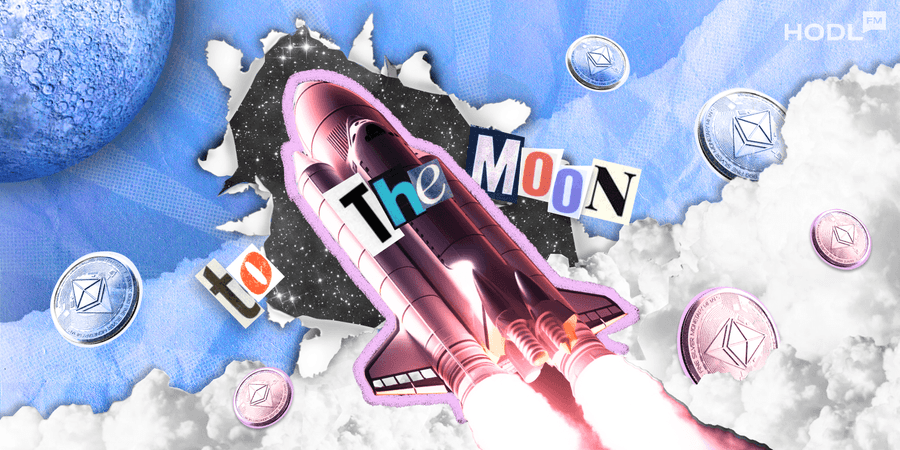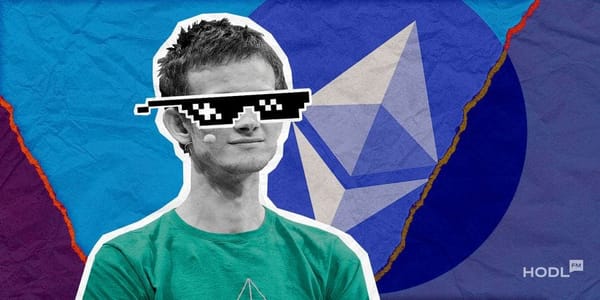Happy 10th birthday, Ethereum! 🎉 On July 30th, Ethereum marks a decade of disrupting the blockchain world, and while it's come a long way, the big question remains: is Ethereum still delivering on its core promise? Vitalik Buterin, Ethereum’s co-founder, threw a curveball at ETHCC 2025, calling out the very thing that put Ethereum on the map—decentralization.
Ethereum turns 10 years old today! 🎉
— HodlFM Team (@Hodl_fm) July 30, 2025
To celebrate, you can mint a free 10-year anniversary NFT here: https://t.co/JjNOkXtFPJ
270K wallets have minted so far
1 NFT per wallet
No clue if it’ll ever be worth anything, but congrats to $ETH on the big 10!
As Ethereum powers global economies, DeFi platforms, and NFTs, Buterin reminded us that "adoption" isn't the ultimate win. We’ve got to dig deeper. If Ethereum’s decentralization doesn’t lead to more control for users, what’s it really worth? Are we talking decentralization in name only?
Buterin pushed for a serious rethinking of what decentralization should look like today. If your app or service is built on Ethereum but still relies on admin keys, or developers can just tweak the system at will, it’s not really decentralized, right? Ethereum’s founders envisioned a world where decentralization wasn’t just a buzzword but a concrete shift in power, taking control away from a select few and giving it to everyone. But right now, it feels like the pendulum is swinging back the other way.

Ethereum’s Growing Pains
Ethereum is now the heartbeat of the global Web3 movement, hosting the majority of decentralized finance (DeFi) and stablecoin activity, but all this power comes with some serious trade-offs.
In 2015, no one imagined Ethereum would be as big as it is today, serving as the backbone for an entire digital economy. But with scale comes complexity, and it’s no longer just the scrappy developers and community-driven projects driving the ship. Financial institutions, state-backed entities, and major protocol operators are now the ones calling the shots.
The result? Ethereum-based applications (dApps) that still rely on centralized admin keys and proxy upgrades are a far cry from the true decentralized vision Ethereum started with. Many DeFi platforms still have the power to freeze funds or alter contracts at will, user control? Not so much.
And let’s talk about sanctions. Ever since Tornado Cash got hit with penalties in 2022, infrastructure providers like Infura and Alchemy have been filtering transactions based on geographic location or regulatory status. This has nothing to do with the Ethereum protocol itself, but it shapes the user experience, creating a hybrid system where decentralization only exists at the protocol level. Everything else? Centralized.
Are Ethereum's Systems Really Decentralized?
Buterin’s ETHCC 2025 keynote wasn't all about pointing fingers; he gave us some tools to measure how well Ethereum is walking the decentralization walk.
First up, the "walk-away test." Would Ethereum still work if the dev team vanished tomorrow? Sadly, many layer-2 networks and DeFi apps would fall apart if the original team disappeared. So much for decentralization.
Next, we have the "insider attack test." Can a rogue developer, or even a compromised front end, mess things up for users? If a single wallet could trigger a protocol upgrade or steal funds, then it's pretty clear: Ethereum still has a ways to go.
Finally, there’s the "trusted computing base." A smart contract may be immutable, but if it depends on centralized oracles, APIs, or RPC endpoints, it’s another potential weak point in the chain.
In 2025, it’s still evident that Ethereum hasn’t passed all these tests. Around 60% of layer-2 networks have admin keys or upgrade mechanisms that let developers change things without asking the users. Meanwhile, more than 70% of dApp front-ends are hosted centrally. So much for user autonomy.
Privacy
Buterin didn’t just stop at decentralization. He also sounded the alarm on privacy, which he thinks should be the default, not an afterthought. Currently, too much user data is visible, traceable, or stored outside the user’s control. MetaMask and other wallet providers even track user IPs and wallet activities, which doesn’t quite scream "decentralization."
Ethereum needs to integrate privacy tools like ZK proofs (zero-knowledge proofs) at the protocol level, making them accessible to everyone, not just niche applications. It’s time to make privacy the baseline expectation.
Governance and Decentralization
Finally, let’s talk governance. Ethereum still uses token-based voting, but as most of us know, this system can easily get hijacked by a handful of major token holders. Buterin called for more research into alternative systems that would allow for broader, fairer participation. After all, decentralization isn’t just about the protocol; it's about how decisions are made, too.
Ethereum’s future isn’t just about scalability, security, or performance. It’s about making sure the freedom it offers is real and that it’s accessible to everyone. The road ahead is clear: Ethereum must confront these decentralization and privacy challenges head-on if it wants to live up to its original mission.
Ethereum’s next decade could be a breakthrough, or it could face the same obstacles that traditional systems are struggling with. Will Ethereum finally embrace true decentralization, or will we look back in 2035 and see a different story? Let’s hope Vitalik’s warning serves as the catalyst for a real transformation.

Disclaimer: All materials on this site are for informational purposes only. None of the material should be interpreted as investment advice. Please note that despite the nature of much of the material created and hosted on this website, HODL FM is not a financial reference resource, and the opinions of authors and other contributors are their own and should not be taken as financial advice. If you require advice. HODL FM strongly recommends contacting a qualified industry professional.





